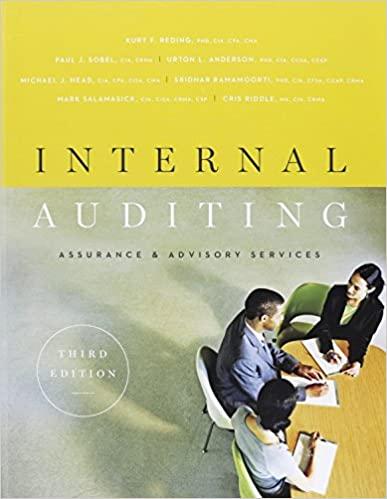Answered step by step
Verified Expert Solution
Question
1 Approved Answer
* * Audit Procedures for Auditor's Responsibility for Professional Skepticism * * Professional skepticism is a fundamental concept in auditing that requires auditors to approach
Audit Procedures for Auditor's Responsibility for Professional Skepticism
Professional skepticism is a fundamental concept in auditing that requires auditors to approach their work with a questioning mindset and critical evaluation of evidence. It involves maintaining an attitude of independence, objectivity, and vigilance throughout the audit process to detect potential errors, irregularities, or instances of fraud.
Key Audit Procedures for Upholding Professional Skepticism:
Critical Assessment of Management Representations: Auditors should critically evaluate the representations made by management regarding financial statements and internal controls. This involves corroborating evidence from multiple sources and considering alternative explanations for discrepancies or inconsistencies.
Independent Verification of Information: Auditors should independently verify the accuracy and completeness of financial information by obtaining sufficient and appropriate audit evidence from reliable sources. This may include examining documents, conducting inquiries, performing analytical procedures, and testing controls.
Assessment of Risk Factors: Auditors should identify and assess the risk factors that may indicate a higher likelihood of material misstatement or fraud. This includes understanding the entity's industry and operating environment, assessing internal controls, and considering the potential for management bias or manipulation.
Use of Professional Judgment: Auditors should exercise professional judgment and skepticism when evaluating audit evidence and forming conclusions. This involves considering the relevance, reliability, and sufficiency of evidence, as well as challenging assumptions and considering the implications of alternative scenarios.
Ongoing Evaluation of Audit Findings: Auditors should continuously evaluate their findings throughout the audit process and remain alert to any indications of fraud or misstatement. This may involve revisiting previous assessments, obtaining additional evidence, or seeking clarification from management or other stakeholders.
Case Study:
ABC Audit Firm is conducting an audit of XYZ Company's financial statements for the fiscal year ending December XX The audit team is tasked with upholding professional skepticism throughout the audit process to ensure the accuracy and integrity of the financial reporting.
Objective Question:
Fill in the blank: Auditors should exercise professional judgment and skepticism when evaluating audit evidence and forming conclusions. This involves considering the relevance, reliability, and sufficiency of evidence, as well as challenging assumptions and considering the implications of scenarios.
A Unbiased
B Alternative
C Predictable
D Traditional
Choose the correct option:
A A
B B
C C
D D
Step by Step Solution
There are 3 Steps involved in it
Step: 1

Get Instant Access to Expert-Tailored Solutions
See step-by-step solutions with expert insights and AI powered tools for academic success
Step: 2

Step: 3

Ace Your Homework with AI
Get the answers you need in no time with our AI-driven, step-by-step assistance
Get Started


